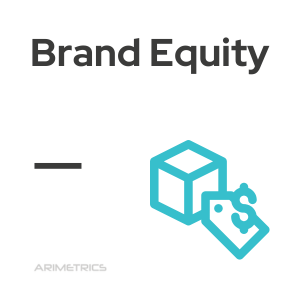Definition
Brand equity, is a fundamental concept in the world of marketing and represents the economic value that a brand has in the market. This value is determined by the perception that consumers have of the brand and its ability to generate loyalty and preference in them.
As a brand generates more loyalty and preference in consumers, its Brand Equity increases, which translates into higher revenues and profitability for the company. In addition, Brand Equity can also help the brand differentiate itself from its competitors in the market, which becomes a significant competitive advantage.
Factors that make up Brand Equity
Some of the factors that make up Brand Equity are:
- The quality of the products or services offered by the brand: Consumers seek quality and reliability when purchasing a product or service, and if these meet or exceed their expectations, their positive perception of the brand will increase.
- The shopping experience it provides to the consumer: Customer satisfaction is crucial for the construction of Brand Equity. A positive shopping experience can generate brand loyalty and preference, while a bad experience can result in loss of customers and reputation.
- The reputation of the company and its trajectory in the market: Consumers take into account the history and image that the company has in the market before making a purchase decision. A good reputation can build trust and credibility, while a negative reputation can be detrimental to brand equity.
- The values and identity that the brand transmits: The identity of the brand is fundamental to connect with consumers and generate affinity and loyalty. A brand with clear and authentic values can generate an emotional connection with consumers and increase their positive perception of the brand.
- Innovation and differentiation: Innovation and the ability to differentiate from the competition are key factors for the construction of Brand Equity. A brand that develops unique products or services and offers a differentiated value proposition can generate brand loyalty and preference.
How to measure Brand Equity
Some of the ways to measure the value of a brand are:
- Brand Awareness Surveys: One of the most common ways to measure Brand Equity is through surveys that measure consumers’ awareness and perception of the brand. These surveys may include questions such as brand familiarity, association with certain values, and purchase preference.
- Analysis of loyalty and retention: Loyalty and retention are important metrics to measure Brand Equity, as they indicate the level of attachment that consumers have towards the brand. If consumers are willing to buy back products or services from the brand, this indicates a positive perception and greater loyalty towards the brand.
- Customer lifetime value analysis: Customer lifetime value is a measure that indicates the monetary value a customer can generate for the company throughout its relationship with the brand. If a high customer lifetime value is observed, this indicates greater brand loyalty and preference.
- Competitive Advantage Analysis: Brand Equity can also be measured by analyzing the brand’s competitive advantage in the market. If the brand is able to differentiate itself from its competitors and maintain a solid position in the market, this indicates a high level of Brand Equity.
